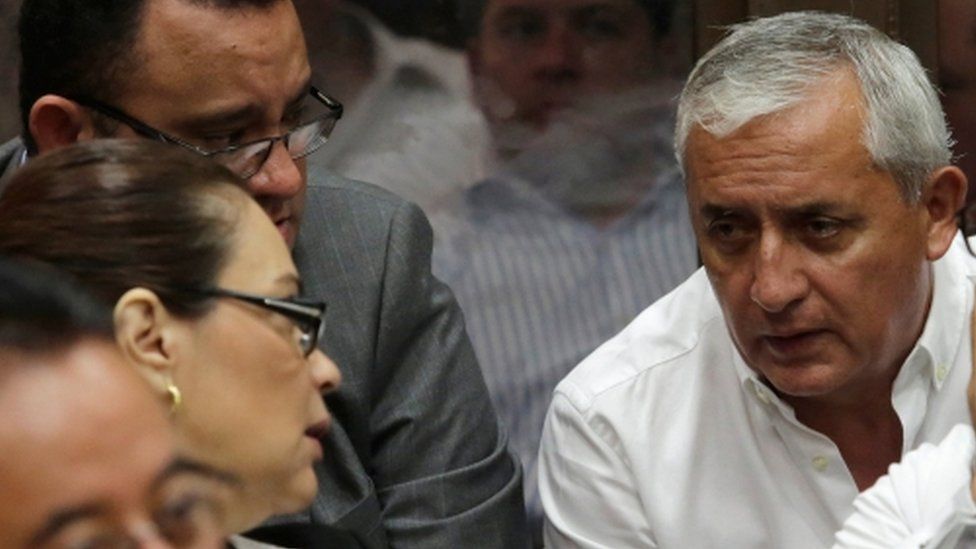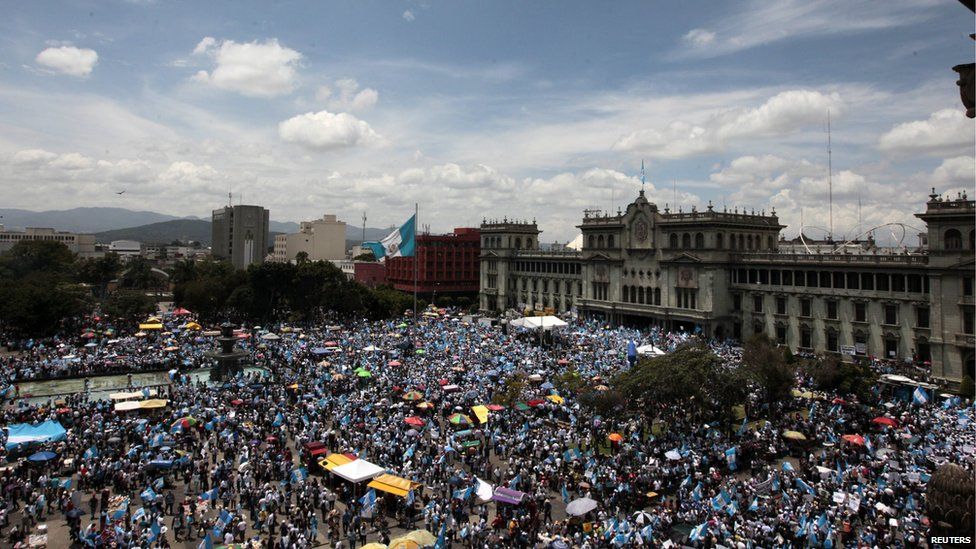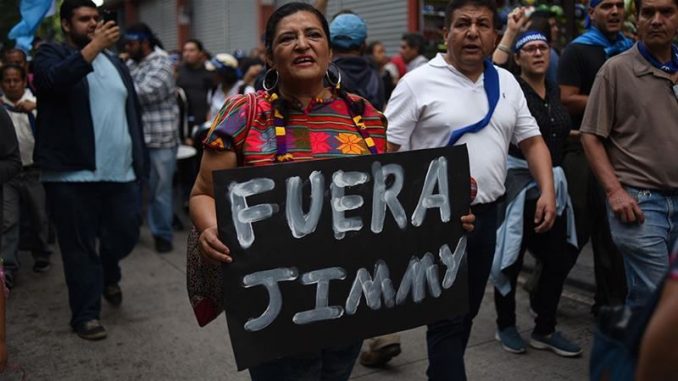(In)Justice in Guatemala: The CICIG & Accountability

Disillusion in the peace process had set in as early as 2001. “Lethargy, cynicism, dependency, and corruption can subvert any hopes for peace. Perhaps lethargy, the loss of momentum matters most” in the case of Guatemala, notes June Carolyn Erlick in her 2001 article The Sorrows of Peace in Guatemala.
What began as an incredibly optimistic and exciting time for Guatemalan change after the civil war quickly proved itself to be a new iteration of poor governance, impunity, and the continued exclusion and marginalization of indigenous communities. By 2001, most of the promised electoral and judicial reforms included in the peace accords had been stalled and absolutely no word of social reforms had been spoken in the halls of Congress. The closest example to attempted political and social reform was through the failed 1997 property tax law that was quickly repealed after the Ladino and White minorities of the country demonstrated discontent (Erlick 68).

A report by the Swedish International Institute for Democracy and Electoral Assistance (IDEA) mission in Guatemala, quoted by Erlick in 2001 found disastrous social inequity figures between the rich and poor. The report found that roughly “83 percent of Guatemalans live in poverty, 59 percent in extreme poverty. Yet the country has the lowest tax rate in Central America, so that the better-off contribute little to ameliorating the social inequities that lie at the root of Guatemala’s civil conflict.” Nevertheless, despite the disillusionment from the government’s failure to deliver on the peace accord promises, human rights activists remain steadfast in their goal to improve the status of indigenous communities and all Guatemalans after the war.
A Stand Against Impunity & Corruption- The CICIG
As a response to growing concerns by the Guatemalan government that a culture of impunity and corruption among the ruling class was too pervasive for national institutions to handle, the United Nations Department of Political and Peacebuilding Affairs spearheaded efforts in 2007 to establish the “International Commission Against Impunity in Guatemala (CICIG in Spanish) in response to a request for assistance from the Government of Guatemala.” This new commission would act independently of the Guatemalan government and serve as a complementary institution for investigations regarding “illegal security groups and clandestine security organizations in Guatemala – criminal groups believed to have infiltrated state institutions, fostering impunity and undermining democratic gains in Guatemala since the end of the country’s armed conflict in the 1990s.” The CICIG was created as “an innovative initiative by the United Nations, together with a Member State, to strengthen the rule of law in a post-conflict country” (UN DPPA).
The CICIG commission’s original mandate was set for a period of two years but was later renewed from 2009 to 2016 by successive Guatemalan administrations, extending the commission’s operations in the country through the end of 2019 (UN DPPA). In the first eight years of operations, the CICIG launched over 200 investigations involving more than thirty criminal organizations/structures, and hundreds of Guatemala’s political ruling class. The most noteworthy example of the commission’s investigative aptitude was the 2015 case that led to the stripping of prosecutorial immunity from then-president Otto Perez Molina and vice-president Roxanna Baldetti, as well as over a hundred other government officials under charges of “illicit association, customs fraud, and bribery” (Beltran 63). Otto Perez Molina’s arrest led to unprecedented protests by Guatemalans in support of the anti-corruption investigation and as a testament to Guatemalans’ desire to end the culture of impunity that has plagued the country since its inception.

As previously stated, disillusionment in the peace accords had grown within the first few years after the culmination of the conflict. This was largely due to the relatively unchanged political and security mechanisms that continued to operate within a culture of impunity years after the Guatemalan government had made the commitment to address such structural disparities. By 2002, “Amnesty International was referring to Guatemala as a ‘corporate mafia state’ built on an alliance between traditional sectors of the oligarchy, new entrepreneurs, police and military officials, and common criminals” (Beltran 63). The failure to address the “abusive elements” left over from the civil conflict within the country’s political and intelligence structures had allowed the very groups and individuals that committed egregious and criminal acts during the conflict, to maintain influential positions after peace was reached, “co-opting nearly all branches of state power and using public institutions for their own interests and to cover up their illicit activities” (Beltran 63). For more on the CICIG’s operational structure & capabilities, click here.
Aside from the high-profile cases that have been carried out by the CICIG, the commission’s true value has come from its assistance in modernizing and fine-tuning the country’s investigative capabilities. Prior to the CICIG’s involvement, the justice system in Guatemala did not employ basic legal techniques such as plea bargaining and victim/witness participation (WOLA).
“The commission’s contributions to ensuring respect for the rule of law have earned it the support of the Guatemalan people: polls from 2017 show that 70 percent of the population has confidence in CICIG and 57.8 percent in the Attorney General’s office, one of the highest levels of trust for a local institution” (WOLA).
Nevertheless, despite the commission’s exemplary track-record and successful implementation of improvements to the state’s judicial and prosecutorial capacities, the CICIG encountered widespread discontent from the Guatemalan political and business elite as a response to many being implicated in several multi-million dollar corruption cases. Unfortunately, despite twelve years of operation in the country, the CICIG’s mandate came to an abrupt end in 2019 after then-president Jimmy Morales announced that his government would not renew the commission’s mandate amid corruption charges mounted against him and his family by the very organ. President Morales banned the CICIG commissioner from entering the country and expedited the removal of the commission’s foreign staff by withdrawing institutional support for the organization which had been provided security measures by the National Police. The United Nations continued to support the commission’s operations but promptly urged all expatriate staff to leave the country as security concerns mounted.

With the CICIG gone, Jimmy Morales was quick to dismantle the institutional framework left by the commission; in line with the desires of the business, political, and religious elite who professed the desire to oust the commission on grounds of maintaining national sovereignty and a principle of non-interference so as “to protect their acts of corruption, impunity, and illicit enrichment. Although the international community and social and indigenous organizations mobilized to reject the government decision, they were unable to obtain a reversal in this regard” (Berger).

For indigenous communities, the CICIG and the work done by the Public Prosecutor had served as the only outlet by which justice could be achieved. The commission’s work had helped protect indigenous communities “against those who, protected by impunity, had been grabbing their lands and committing acts of violence against their communities. The non-renewal of CICIG’s mandate thus leaves them more vulnerable to attacks both from clandestine groups and from arbitrary government decisions against their collective rights.
_____________________________________________________________________
Related Sources:
Democracy in Peril: Facts on CICIG in Guatemala
Indigenous-led protests rock Morales regime in Guatemala
_______________________________________________________________________
Sources:
Berger, David Nathaniel. “Indigenous World 2019: Guatemala.” IWGIA – International Work Group for Indigenous Affairs, 9 Aug. 2019, www.iwgia.org/en/guatemala/3379-iw2019-guatemala.html.
“CICIG.” Department of Political and Peacebuilding Affairs, dppa.un.org/en/mission/cicig. Accessed 7 May 2022.
Washington Office on Latin America (WOLA). “Fact Sheet: The CICIG’s Legacy in Fighting Corruption in Guatemala.” WOLA, 27 Aug. 2019, www.wola.org/analysis/cicigs-legacy-fighting-corruption-guatemala.